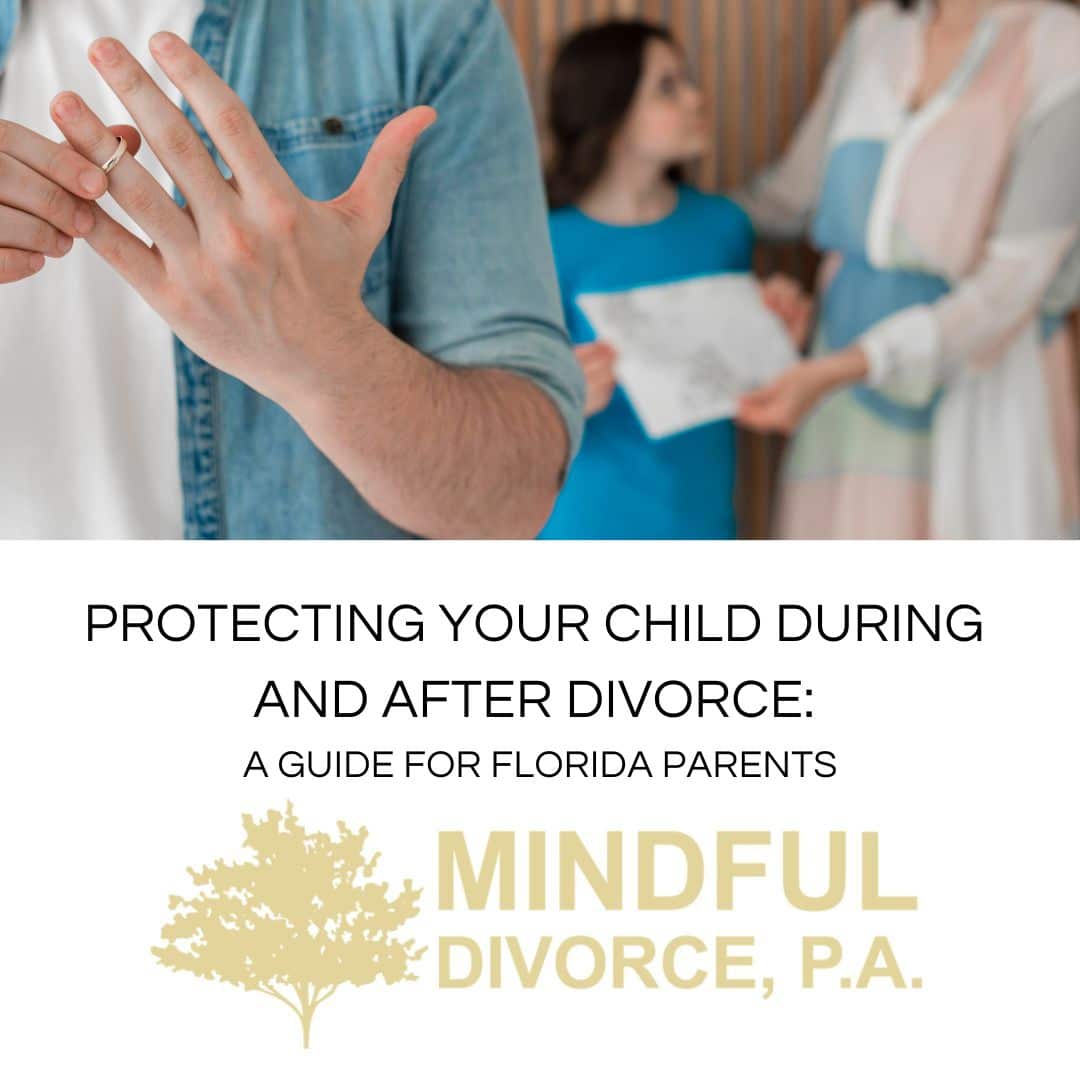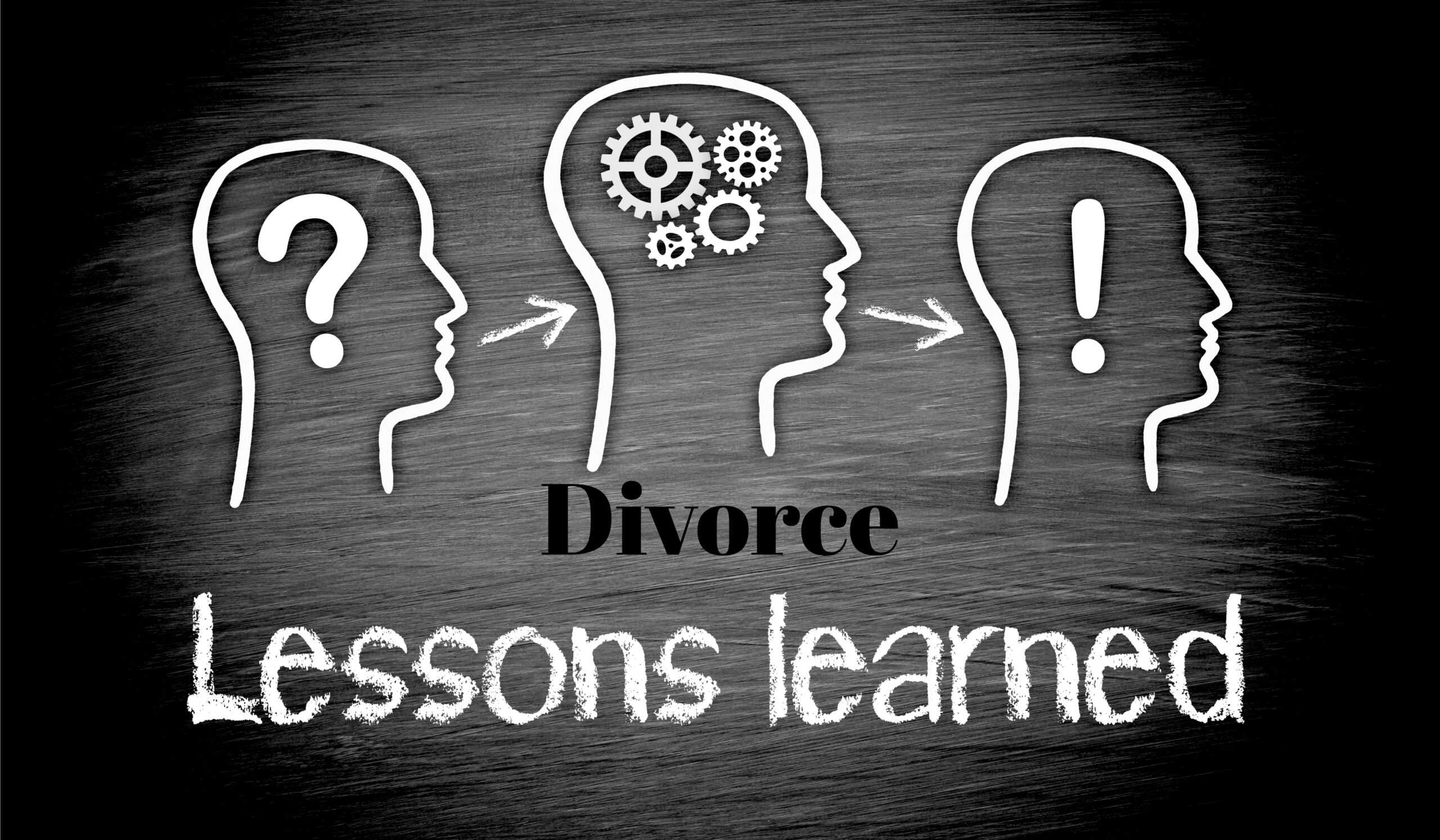Divorce is tough, but it can be especially hard on your kids. It’s not just about who gets what—it’s about making sure your child feels safe and supported through all the changes both emotionally and psychologically.
Every child responds to divorce differently, and their needs will vary depending on their age and level of maturity.
In this guide, we’ll explore how you can protect your child during and after divorce, offering practical advice that can make a difficult transition a little bit smoother.
At Mindful Divorce, P.A., we understand the worries parents face during divorce. Our goal is to help you protect your child’s well-being with practical advice and predictable legal services, so you can focus on what really matters.
We’re one of the first firms in the area to offer fixed-fee schedules for divorce matters. We aim to provide clear, predictable legal services to reduce stress during this challenging time.
Impact of Divorce on Children by Age
Kids of different ages react to divorce in their own ways, and knowing what to expect can help you support them. Here’s a breakdown by age:
Babies (Birth to 18 Months)
Even though they might not understand what’s happening, babies can sense tension and stress. You might notice:
- Increased irritability
- Clinginess or emotional outbursts
- Regression in behavior or delays in development
Babies are highly attuned to their environment, and any change in routine can disrupt their sense of security. Consistent care and soothing routines can help them feel more settled.
Toddlers (18 Months to 3 Years)
At this age, toddlers are starting to understand their world, but they’re still developing the language to express their emotions. Common reactions include:
- Increased crying or seeking attention
- Regression (e.g., going back to thumb-sucking)
- Resistance to toilet training
- Sleep disturbances
Reassurance and consistent routines are key. Simple explanations about what’s happening can also be beneficial, even if they don’t fully grasp the situation.
Preschoolers (3 to 6 Years)
Preschoolers may start to realize something is changing, but they might not understand why. They can experience:
- Confusion about the divorce
- Feelings of self-blame
- Anxiety about the future
- Suppressed anger or emotional outbursts
- Nightmares or difficulty expressing emotions
It’s important to let them know they are loved and that the divorce is not their fault. Encourage them to talk about their feelings, even if it’s through play or drawing.
School-Age Children (6 to 11 Years)
Children in this age group are more aware of the implications of divorce. They might feel:
- Abandonment or rejection
- Anger, often directed at one or both parents
- Anxiety or withdrawal
- Depression
- Academic difficulties or acting out
They may need extra reassurance and more frequent check-ins to express how they’re feeling. Encourage open communication and ensure they know they can ask questions.
Protecting Your Children During and After Divorce
While divorce is a big life change, there are steps you can take to help your child feel safe and supported:
Maintain Stability and Routine
Kids thrive on routine, and maintaining consistency can help them adjust. This means keeping school schedules, extracurricular activities, and bedtimes as unchanged as possible. Here’s how:
- Stick to regular mealtimes and bedtime routines
- Continue school and after-school activities without interruption
- Make sure your child feels safe and secure in both homes
Minimizing changes to their living arrangements can also make a huge difference. It reassures your child that, despite everything, some things remain constant.
Promote Healthy Communication
Talking to your child about divorce can be difficult, but it’s essential. Explain things in simple, age-appropriate terms, and make sure they know it’s okay to ask questions or express how they feel.
- Reassure them that the divorce is not their fault
- Let them know it’s okay to love both parents
- Offer practical ways to talk about difficult topics, like custody arrangements or potential moves
Healthy communication encourages your child to voice their feelings rather than bottling them up, which can reduce anxiety and confusion.
Minimize Conflict
As much as possible, avoid exposing your child to conflict. They shouldn’t feel like they have to pick sides or act as a messenger between parents.
- Don’t speak negatively about the other parent in front of your child
- Prioritize your child’s needs above any ongoing conflicts
- Consider parallel parenting arrangements to reduce the chance of direct conflict
Keeping the peace can help your child feel more secure, knowing they don’t have to bear the brunt of any arguments or disagreements.
Maintain Quality Parenting
Even with limited time, make your parenting moments count. Show your child affection, set clear limits, and be engaged during your time together.
- Be present—put away distractions and focus on them
- Avoid using your child as a messenger or confidant
- Make the most of your parenting time with activities that create positive memories
These moments of connection will help reinforce their sense of security and show them they are still your priority.
Develop a Cooperative Co-Parenting Relationship
The best situation for your child is when both parents work together. Even if it’s difficult, try to keep communication open and respectful.
- Create a parenting plan that gives stability to your child
- Communicate regularly with your co-parent about your child’s needs
- Present a united front on important issues to avoid confusion
If it’s too challenging to cooperate directly, co-parenting counseling can help. It’s not just about getting along—it’s about ensuring your child feels supported by both parents.
Seek Professional Support
Sometimes, despite your best efforts, your child might need more support than you can provide alone. Therapy or counseling can offer them a safe space to work through their emotions.
- Consider therapy for your child to help them express their feelings and develop healthy coping mechanisms
- Seek individual therapy for yourself if needed—it can be a valuable tool in managing your own emotions so you can be fully present for your child
Professional support can help the whole family through this transition and provide a clearer path forward.
Prioritize Children’s Emotional Needs
It’s more than just sticking to routines. Pay attention to how your child is feeling and offer extra comfort when they need it.
- Offer extra reassurance and affection
- Allow time for them to adjust, without rushing big changes
- Avoid burdening them with adult concerns, like financial worries or legal details
Books, support groups, and online resources can also be helpful if you’re looking for more ways to support your child. Extra hugs will go a long way during
Legal Considerations In Florida
In Florida, child custody laws aim to serve the best interests of the child, and understanding these laws can be crucial to creating a stable environment during and after a divorce. Here are some points to keep in mind:
- Parenting Plans: Florida encourages both parents to stay involved in their child’s life. A parenting plan can help keep everyone on the same page.
- Types of Custody Arrangements: The court might decide on joint custody or set up a time-sharing schedule, depending on what works best for the child Joint custody, sole custody, and time-sharing schedules are all possible outcomes.
- Parenting Course Requirement: Before your divorce is final, both parents have to take a 4-hour parenting course. It helps you understand what your child is going through and how to support them.
Supporting Florida Families Through Divorce
Going through a divorce is never easy, but by prioritizing your child’s well-being and seeking professional guidance, you can help them through this challenging time. If you’re in Florida and need assistance navigating your divorce, contact Mindful Divorce, P.A. at 561-537-8227 today.
Our team is committed to protecting your rights and ensuring your child’s best interests are at the heart of every decision. Let’s work together to find a brighter path forward.






